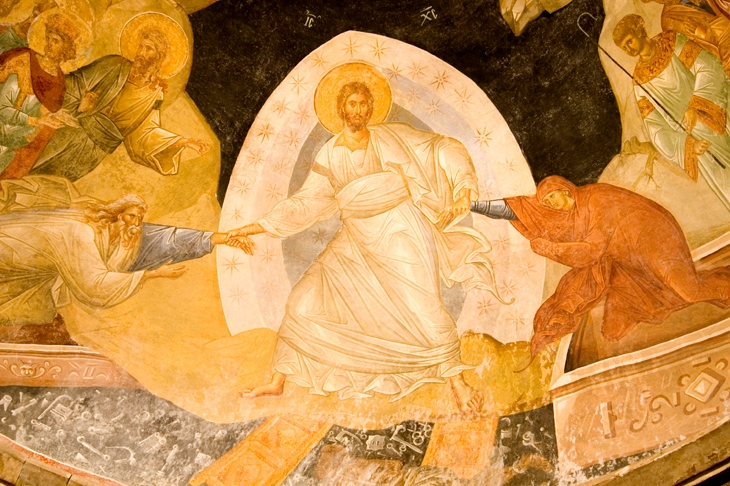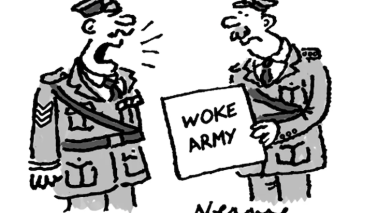My friend Jonathan Gaisman recently gave rise to a profound philosophical question concerning wine. Jonathan is formidably clever. He has a tremendous reputation at the Commercial Bar. Although he brushes aside any compliments from the unqualified, there was a recent case — Excalibur — where his performance won the awed approval of lawyers to whom even he might concede quasi-peer status. They aver that his preparation was exemplary, his cross-examination ruthless and relentless; his triumph total.
That said, he is anything but a monoglot lawyer. Not only a music lover but a musicologist, modesty alone would prevent him from claiming that Nihil artium a me alienum. Among the minor arts, he is a practised oenologist. But he is also thoughtful and combative on the subject of religion, on which he and I have had many exchanges. In a recent issue of Standpoint, he wrote an essay, ‘The devout sceptic’, which came close to convincing this devout atheist. Almost thou persuadest me to be a Christian.
Almost, but there is a basic problem. It is not clear to me that Jonathan himself is a Christian. I have argued that no one can call himself a Christian unless he believes not only in the Incarnation but also in the literal truth of the Resurrection. If it is not true Christ died on the cross and was raised from the dead, Christianity is meaningless. This point irritates Jonathan. He does not see why I should prescribe rules for a club to which I do not belong. But I would retort that without the Resurrection, his version of Christianity has no theology and no historical continuity. It is merely a matter of aesthetics and ethical aspirations.
Jonathan once asked me whether I believed that there were mystical truths. Caught off intellectual balance, I replied: ‘No.’ I am still trying to decide whether I agree with myself. ‘“What is truth?” said jesting Pilate, and would not stay for an answer.’ ‘It depends what you mean by truth,’ C.E.M. Joad would have asserted. I will be temerarious enough to assert that truth is only a useful concept if it relates to a subject matter that is verifiable. So mysticism may be beautiful. That does not make it truthful.
It is so tempting to conflate truth and beauty. Titian’s ‘Assumption’ in the Frari, the Mass in B Minor, Durham Cathedral. Surely none of them could have been created without faith. As one’s soul soars in response to their sublimity, it seems churlish not to genuflect to that faith.
I cannot take that step. Man needs God, to make sense of the universe and his own existence. We find it impossible to accept that the universe is just an accident. But the need for God does not prove that He exists. It may be that we are adrift in a meaningless cosmos, condemned to a destiny of mini-tragic heroism in our own lives, with only stoicism to replace faith. If so, let us embrace stoicism and defy tragedy.
Recently, Jonathan had what should have been a most unstoical experience. He was off to the Aegean, on a yacht which was plentifully supplied with Château Pétrus. But he announced that he would drink only retsina. Was this a penitential exercise, perhaps expiating the massacre of an excessive number of solicitors? ‘No,’ he insisted. It was all about genius loci. I find that wholly incredible. Certainly, one would not wish to drink Pétrus — or any red wine — in the midday heat. But as the sun sets over the wine-dark sea, becoming God-haunted with nightfall so that one could easily imagine the Homeric deities setting forth from Mount Olympus to reclaim their dominions, what better than a beaker or two of Pétrus? Jonathan believes that God is everywhere. I think, with more evidence, that the same is true of Pétrus. That wine, in that sea: almost enough to make me a mystic.






Comments